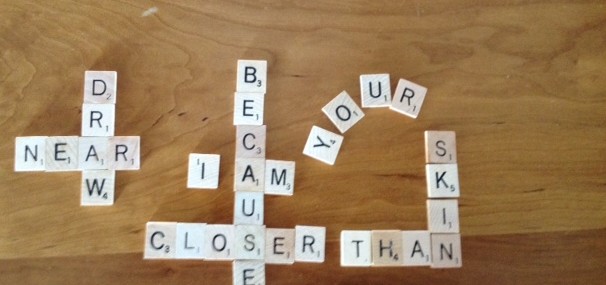A cargo ship crossing the ocean came upon what seemed to be a deserted island. A line of smoke told otherwise. Maybe someone was stranded. The captain went ashore in a smaller boat and found three huts. A ragged-looking man appeared in the doorway of one.
 “Are you and others stranded here?” asked the captain.
“Are you and others stranded here?” asked the captain.
“Nope, it’s just me,” said the man. “I live here.”
“I see.” The captain scanned the other two huts. “And what’s this second hut for?”
“Oh, that’s my church,” the man said.
The captain eyes grew wide as he slowly nodded. “And the third one?”
The man shifted his feet in awkward silence. “Well,” he said in hushed tones, “that’s my former church.”
My father told me that joke. What a laugh we had! Often, our discontent with church has something to do with us! Who knew! No fellowship of believers is ever going to be perfect.
 Here’s another take. A young man I know felt deeply frustrated with the dating scene. He’d gone out with several very nice girls. After the initial electricity of a new relationship, the girlfriend became too dependent, making the young man her entire world. Expectations felt suffocating. He didn’t have freedom to do things with friends without a pouty girl giving him the silent treatment. These girls weren’t bad partners—just undeveloped in their sense of personhood.
Here’s another take. A young man I know felt deeply frustrated with the dating scene. He’d gone out with several very nice girls. After the initial electricity of a new relationship, the girlfriend became too dependent, making the young man her entire world. Expectations felt suffocating. He didn’t have freedom to do things with friends without a pouty girl giving him the silent treatment. These girls weren’t bad partners—just undeveloped in their sense of personhood.
In the same way, we can put heavy expectations on the church and our pastors, priests, and ministers, creating a black hole that can never be filled. Many who serve in pastoral positions try hard to be all things and end up bone weary.  People with unmet needs shift from church to church, and some actually work the system.
People with unmet needs shift from church to church, and some actually work the system.
It comes down to our own relationship with God.
Is it underdeveloped? Are we fledglings in our capacity to know God?Continue reading














